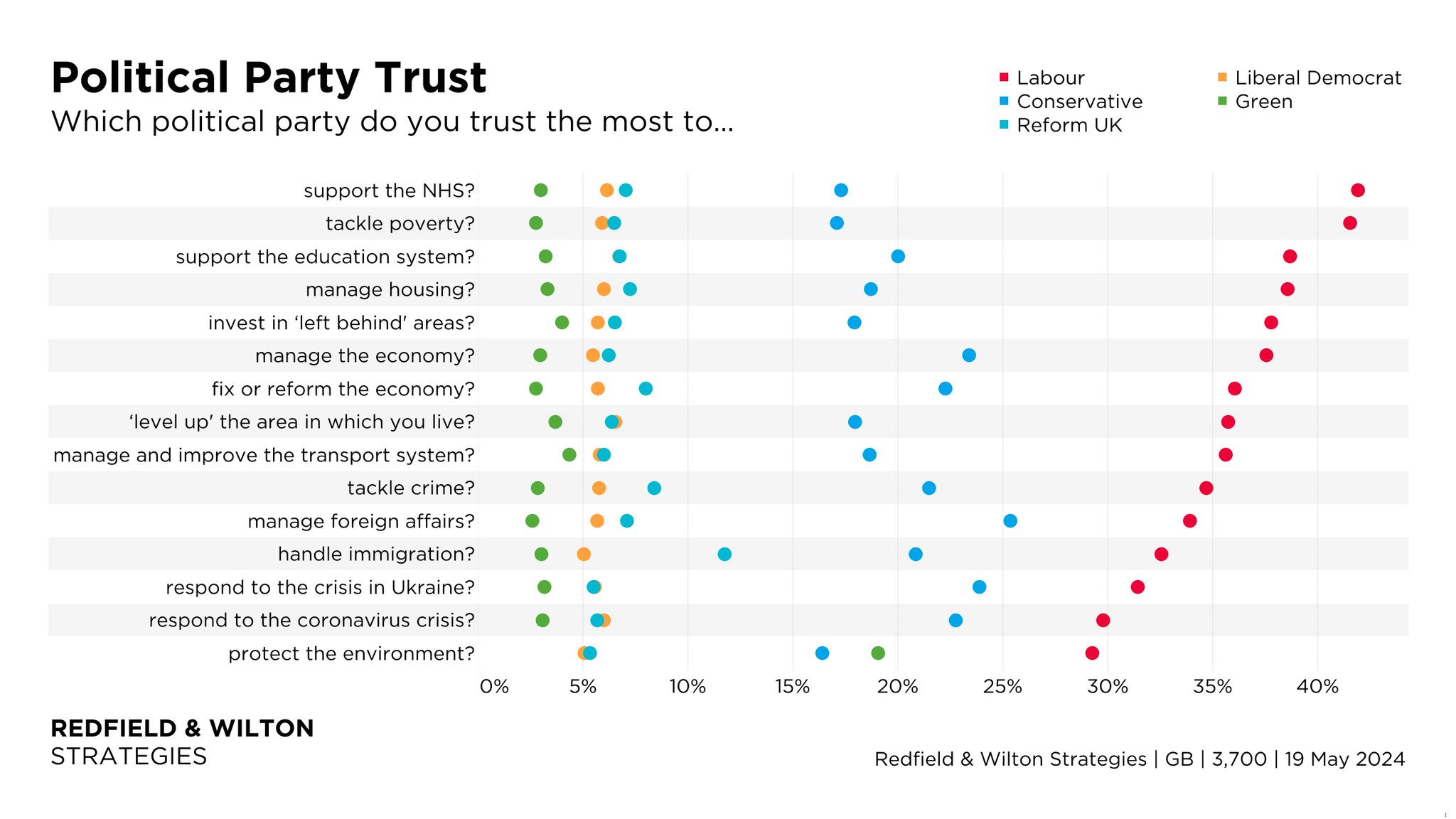Bill Stickers is innocent!
Very much agree with all these points. I also don't think it's that useful to be spamming this community with polls as they come out. But thought this was a helpful bit of information to see where things roughly stand at the beginning of campaign time.
Weirdest set of things in the prize task for quite a while, I loved it.
Not to say I fully agree with the author's viewpoint, but this article is a good, non-sensational, explanation of the current Thames Water situation. Worth a read if you're interested in what's actually going on.
If they were dead set on doing a tax cut (unfortunately for the good of the country) at least they made it an NI cut rather than an income tax cut.
I can see a way forward for labour if they want to raise more money without straight up reversing these cuts by abolishing NI (or gradually reducing it to phase it out) and correspondingly increasing income and/or capital gains tax.
They can chalk it up as making the tax system fairer by removing the tax on which employees pay more than self employed or those with passive wealth-based income. Simultaneously they can say they are building on the one positive outcome of the previous budget.
Mr Robot, you missed an important sentence:
Abolishing the non-dom tax regime would raise an estimated £3.6bn a year.
Britons, for instance, think they live in a country where only 37 per cent of people would give 1 per cent of their income to the climate fight, but the study indicates the real figure is 48 per cent.
"48% Vs 52%” Oh god it's the cursed numbers again!
I'm a big fan of middle class ideals. Just have a look on Google maps, there's more around than you might expect.
See if you have a local pottery near you that could make a new lid to fit.
They're really descending into the pits of weird fringe politics - like the sort of stuff you'd see from pre-Farage UKIP.
It also seems to be the opposite strategy to Johnson, who was essentially the bullshitting yes man that wanted great, wonderful, positive things for everyone but with no plan on how to achieve it. Instead of grand visions of new (unfeasable) infrastructure projects based on (non existent) future technology that the government will help develop, and impressive sounding targets (with no execution plan) to "make Britain world beating", we now have policies seeking to actively block and slow development of anything new. Johnson was popular because he was promising progress and great things to everyone. Sunak is now attempting to do the polar opposite of what Johnson used to achieve electoral success, presumably because he's aiming for the opposite of electoral success???
The two potential roads seem somewhat equivalent to me:
- Threads federation is blocked by the main Mastodon instances. A huge user base of non-techies starts using Threads and it dwarfs the rest of the fediverse acting as a singular centralised platform. The fediverse continues to be a techie/ideological anti-corporate community as it is now with a relatively small community in the grand scheme of things.
- Threads federates with some of the big Mastodon instances. Fediverse instances outside of Threads get a large amount of growth as people see the extra content available in this larger federated environment. Growth of Threads still outpaces all other fediverse instances combined. Meta then carries out some form of EEE tactics and some large chunk of the userbase of the non-Threads instances switch to Threads. The techie/anti-corporate community continues to use fediverse instances without any interaction with Threads.
Both scenarios end in a large centralised platform run by Meta and a small community that want to avoid a corporate platform.
I think it's also wise to separate the effect of large corporate instances in the fediverse between effects on Mastodon (where users follow users) vs Lemmy/Kbin (where users follow communities). In the case of Mastodon, the effects of EEE tactics will be strong due to a more powerful network effect because it's important that a particular person is on the same platform as you (i.e. this is a similar situation to XMPP and gchat). In contrast, you just need some people to participate in a Lemmy/Kbin community to make it worth joining, but it doesn't matter exactly who, meaning that membership can be small and sparse but the community still has a meaningful existence (i.e like niche forums).
NotACube
0 post score0 comment score

I'd say this is less about reducing CO2 and more about making cities and towns nicer places to live and helping people live healthier lives.
I have no idea what the stats on this are, but I'd guess that the amount of emissions saved in people cycling more vs using a petrol car or electric car wouldn't actually be much compared to measures that reduce emissions from goods transport.